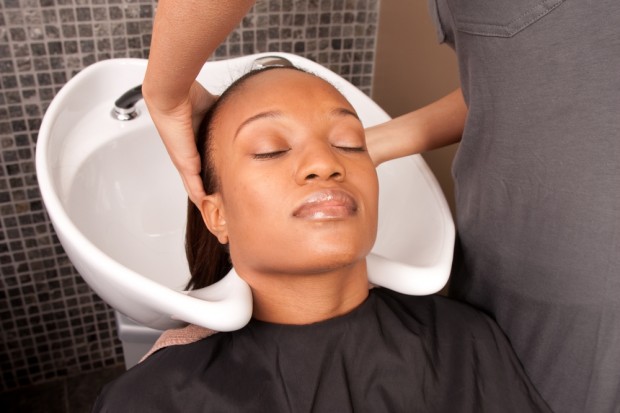*The modern day Black woman doesn’t need a study to tell her that we live in a society that looks down upon melanated people… especially those with a vagina who are darker than a paper bag and rock their own natural hair. Like comedian Paul Mooney once said, if we’re nappy… white people aren’t happy.
As many of us continue to go broke trying to prim, process and straighten our hair using products from the old world and the new, a so-called “groundbreaking” new study that examined attitudes toward Black women’s hair has revealed that a majority of people, regardless of their race or gender, hold some bias toward women of color based on their hair…. SHOCKER!!
READ RELATED STORY: Alicia Keys On Social Norms: ‘Let A Boy Dance, Paint His Nails’
The study was released by Perception Institute and was inspired by SheaMoisture’s “Break the Walls” campaign. The campaign was created to challenge “the beauty and retail industries to address the aisle ‘segregation’ of hair products by race,” per Jet Magazine. “The ‘Good Hair’ Study” explored how the European hair and beauty standards affect perceptions of women of color.
Key findings of the report can be viewed below:
- Millennial “naturalistas” have more positive attitudes toward textured hair than all other women.
- Black women experience more anxiety related to their hair and a greater social and financial burden of hair maintenance than White women.
- White women demonstrate the strongest bias (both explicit and implicit) against textured hair, rating it as less beautiful, less sexy and less professional than smooth hair.
- Black women believe the U.S. thinks straight hair is significantly more beautiful and sexy than White women.
“Many Black women will feel affirmed by the Good Hair Study – it is what they have always known and experienced: wearing natural hairstyles has deep political and social implications,” Alexis McGill Johnson, co-founder and executive director of Perception Institute said. “Our hope is that those who create the images we see in our daily lives will consider how bias against natural hair can undermine the ability for Black women to be their full selves and affect their professional trajectory, social life and self-esteem.”
The study’s findings are based on 4,163 participants, including 3,475 men and women in a national sample recruited via an online panel. Of that number, 688 participants identified themselves as “naturalistas.”
Click here to read “The ‘Good Hair’ Study: Explicit and Implicit Attitudes Towards Black Women’s Hair.
We Publish News 24/7. Don’t Miss A Story. Click HERE to SUBSCRIBE to Our Newsletter Now!







